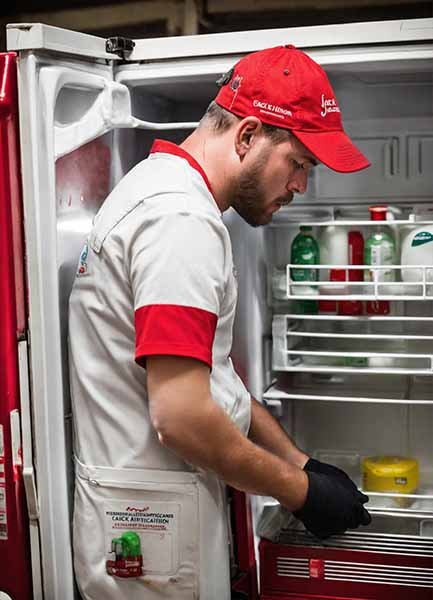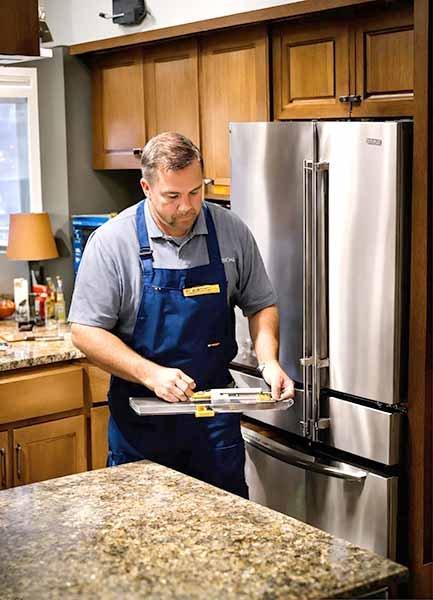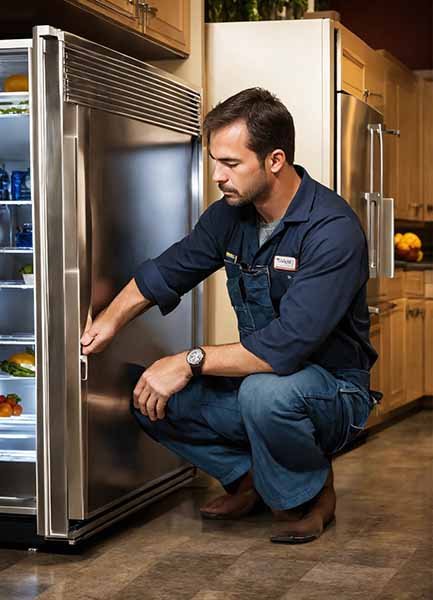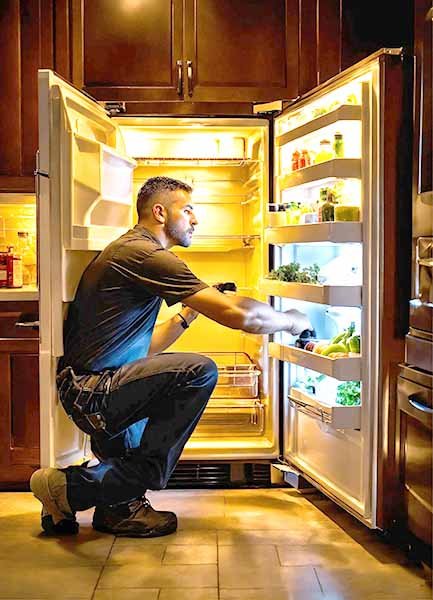Fundamentals of Thermodynamics: Exploring the basic concepts of enthalpy, entropy, and the laws of thermodynamics in refrigeration.
Thermodynamic Refrigeration Cycles: Understanding various refrigeration cycles and their applications in domestic systems.
State Changes in Thermodynamic Systems: Analyzing how refrigerants transition between different states in the refrigeration process.
Thermodynamic Property Diagrams: Learning to interpret and utilize key diagrams like T-v (temperature vs. specific volume), p-h (pressure vs. specific enthalpy), T-s (temperature vs. specific entropy), and h-s (specific enthalpy vs. specific entropy).
Pressure-Enthalpy (p-h) Diagrams: In-depth study of the most commonly used diagram in refrigeration, the pressure-enthalpy chart, and its practical applications.
Fluid Properties in Refrigeration: Examination of the properties of various refrigerants and their impact on refrigeration systems.
Basics of Refrigeration: Understanding the refrigeration cycle, key components, and the principles of heat transfer.
Household Refrigerators and Freezers: Hands-on training in maintenance, troubleshooting, and repair of domestic refrigerators and freezers.
Water Coolers and Dispensers: Detailed study of system design, temperature control, and maintaining hygiene standards.
Compressor Technology: Exploring types of compressors, their functions, and maintenance in domestic units.
Refrigerants and Environmental Impact: Studying different refrigerants, their characteristics, and environmental considerations.
Electrical Fundamentals in Refrigeration: Learning about electrical components, circuits, and safety in refrigeration systems.
Evaporators and Condensers: Design, functionality, and maintenance of evaporators and condensers in household units.
Thermostat Controls and Calibration: Operating and calibrating thermostats for efficient temperature management.
Sealed System Repairs: Techniques for maintaining and repairing the sealed systems of refrigerators and freezers.
Defrost Mechanisms: Understanding different defrost systems used in domestic refrigeration.
Energy Efficiency in Refrigeration: Practices and technologies for enhancing energy efficiency in refrigerators and freezers.
Ventilation and Heat Exchange: Principles of ventilation and heat exchange in maintaining refrigerator efficiency.
Noise Diagnosis and Control: Identifying and addressing common noise issues in domestic refrigeration units.
Cooling Load Calculations: Methods for determining the cooling load requirements in refrigeration.
Insulation and Gasket Maintenance: Importance and maintenance of insulation and gaskets in refrigerators.
Lighting and Electrical Accessories: Maintenance of lighting and electrical components in refrigeration units.
Door Alignment and Seal Issues: Resolving common issues with door alignment and seals.
Smart Refrigeration Technologies: Overview of advanced technologies and IoT integration in modern refrigeration.
Diagnostic Tools and Techniques: Introduction to tools and techniques for diagnosing refrigeration systems.
Safety Standards and Protocols: Adhering to safety standards in refrigeration repair and maintenance.
Customer Service in Refrigeration: Developing customer service skills specific to the refrigeration industry.
Preventive Maintenance Practices: Comprehensive guide to preventive maintenance for extended unit life.
Troubleshooting Refrigeration Issues: Approaches to effectively troubleshoot common issues in refrigerators and freezers.
Retrofitting and Upgrading Refrigeration Systems: Processes and considerations for retrofitting and upgrading older refrigeration systems.



